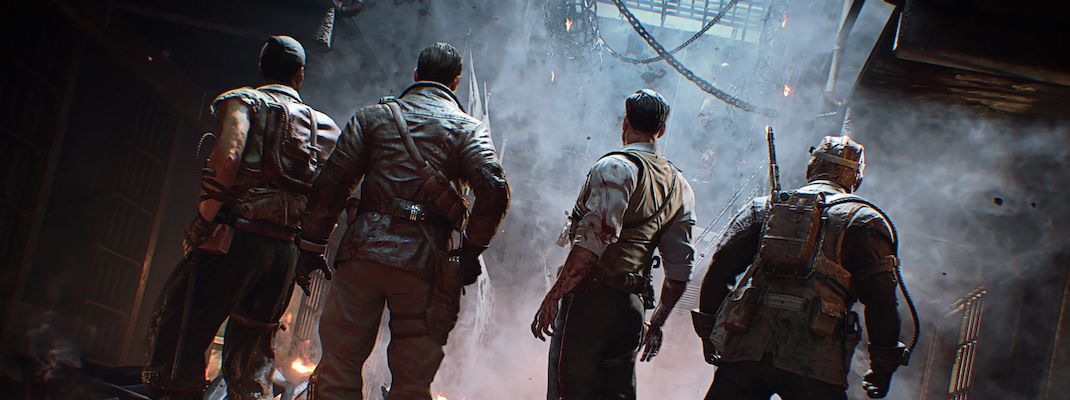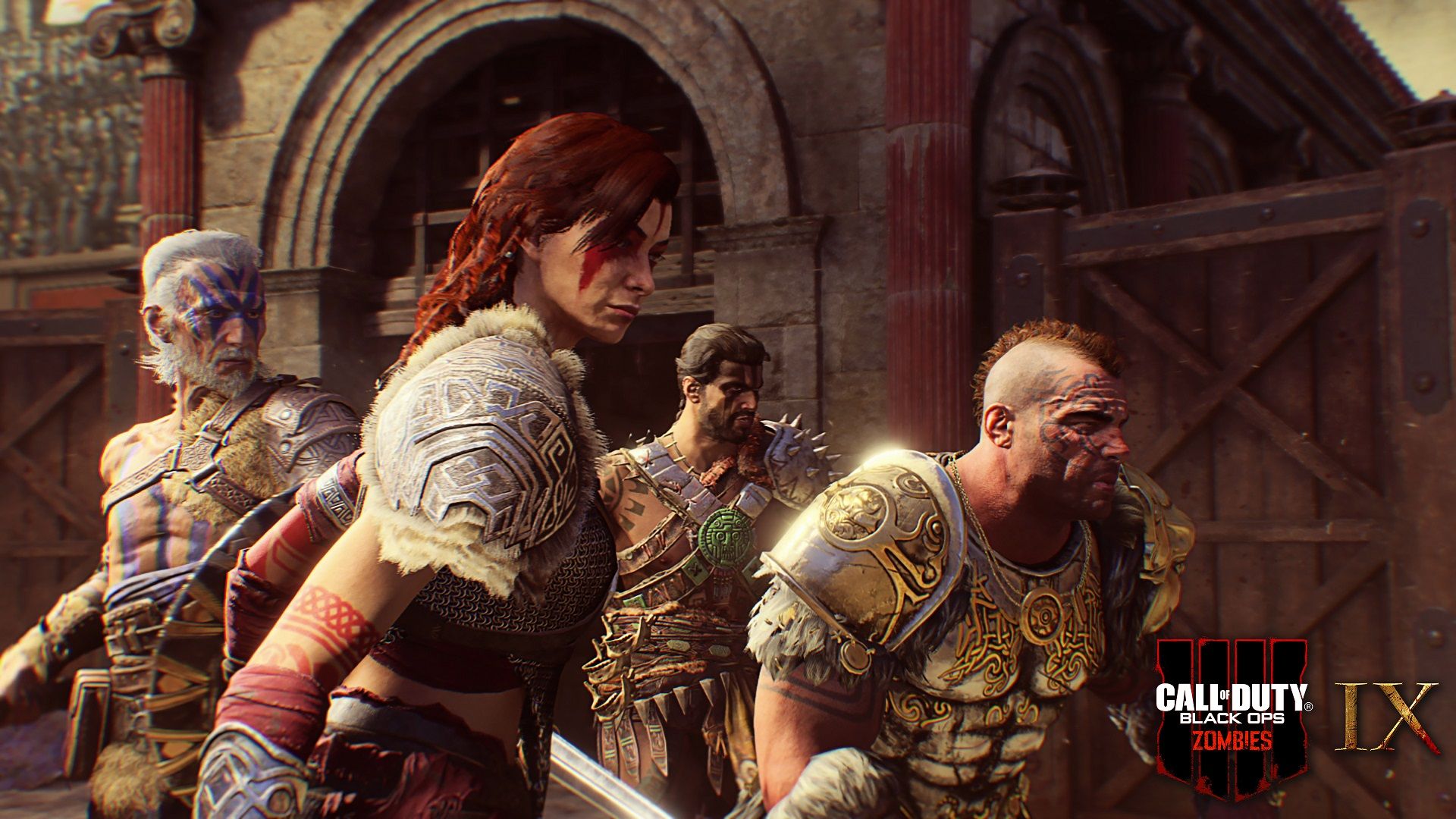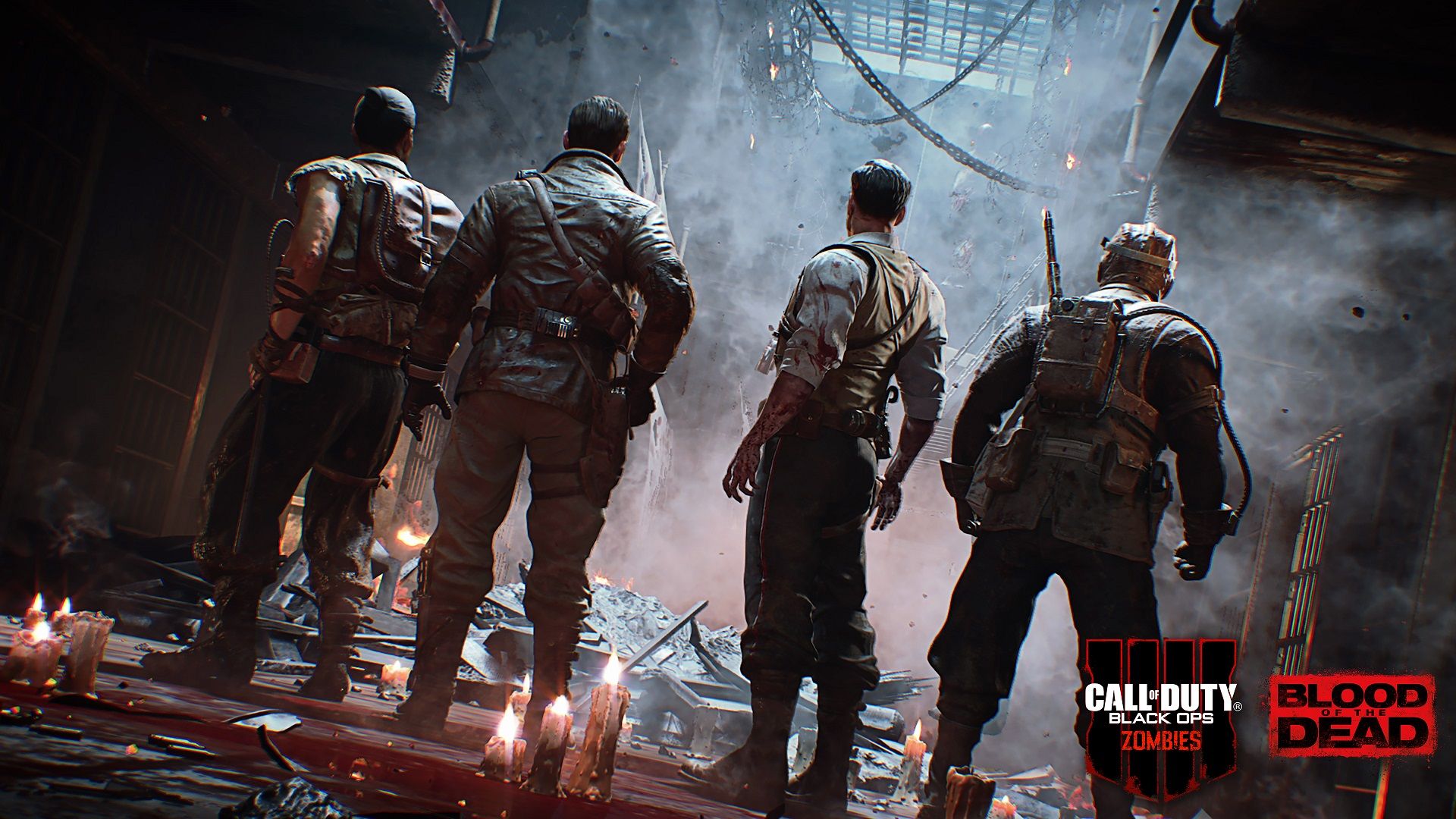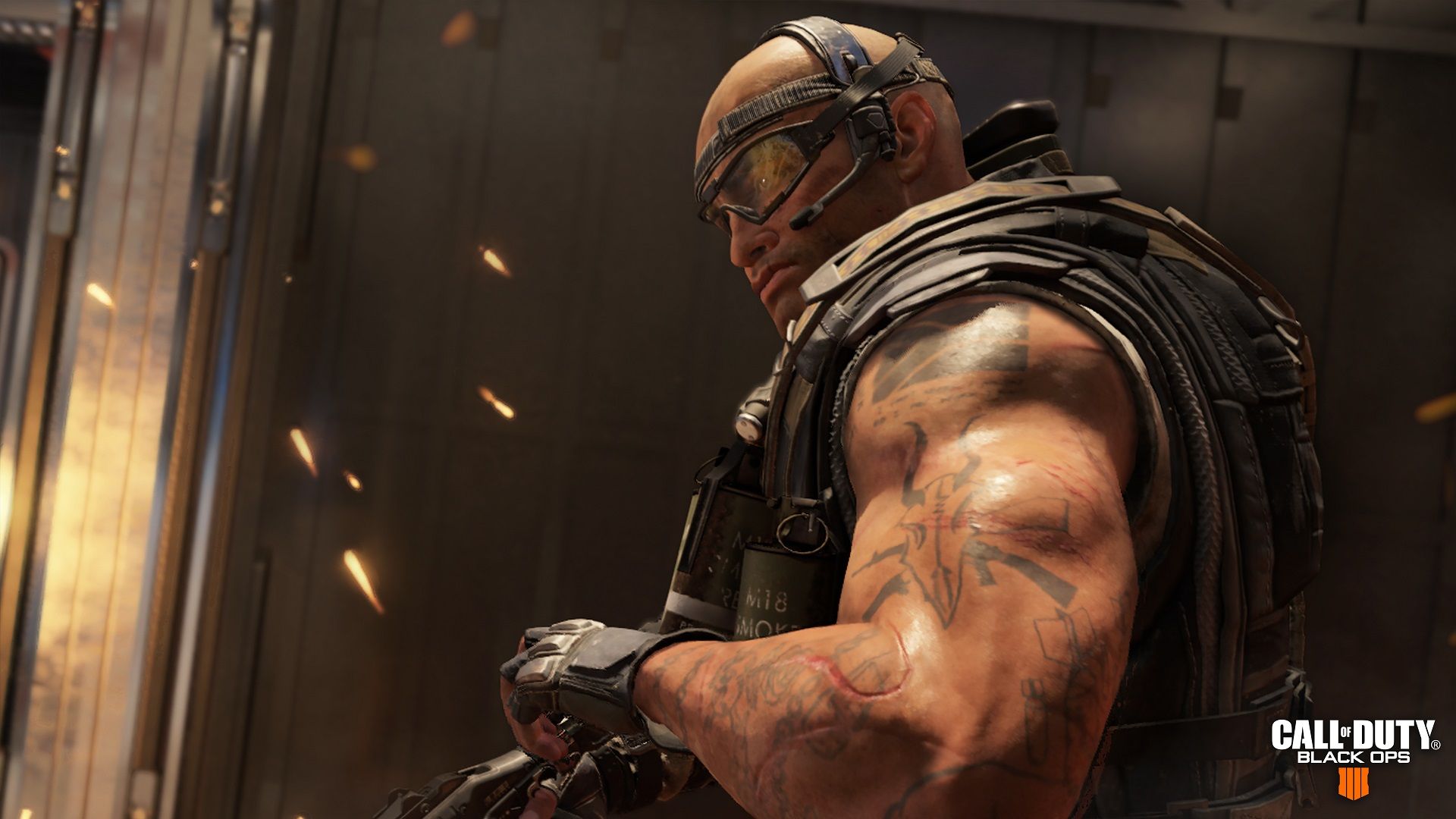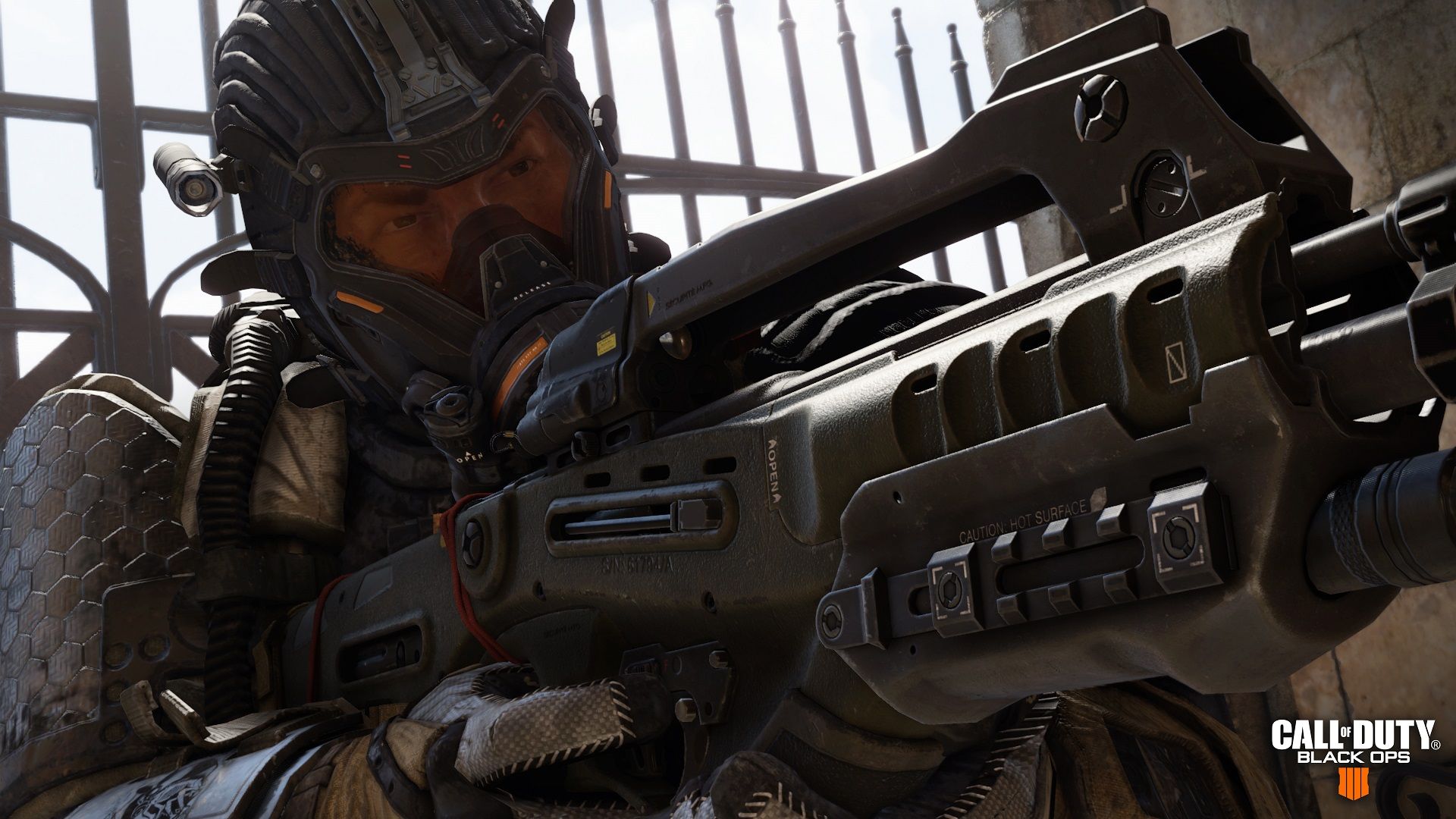Last week, Hardcore Gamer had the opportunity to sit down with Treyarch Senior Producer, Yale Miller, and Game Designer, Matt Scronce, following the bombastic Call of Duty: Black Ops 4 reveal in Los Angeles. As part of a roundtable with fellow editors from ScreenRant, Xbox Addict and Attack of the Fanboy, we were able to go deeper into elements that were only touched on during the presentation and get the lowdown on features that weren't. Those who walked away from the reveal excited but craving more information should buckle up and read on (please note that bold parts are questions from press and we did denote which as to better present the interview as a whole).
It seems like you guys really stuck to the boots on the ground part of it and the real takeaway was the weapons and the more unique characters themselves. What was the most important player feedback you took away from previous games that you wanted to incorporate into this one?
[Scronce]: You know I don’t know if it was specifically about player feedback, it was more about what worked for Black Ops 4 and that was taking a long hard look at the movement set. Like we said we settled on no wall running, no thrust jumping; that’s what works best for the game we are making right now.
While we love wall running and thrust jumping, Black Ops 4 will be all about the brand-new specialist and content; it’s all about playing with your team in a tactical manner. One example I like to give is Torque (a specialist) can throw down his barricade, so imagine if you could just rush him over the barricade, at that point it means so much less, bringing everything back down to the ground it gives everything much more meaning.
You discussed how you want to have a narrative through multiplayer but without single player how does this happen?
[Miller]: With our specialists in Black Ops III we introduced these kinds of narratives and the backstories behind them and I think one thing that is important for us is these are characters that you will play with for hours upon hours. Each Specialist will have missions they can go on in the world and you can learn more about that specialist, all of their abilities, different pieces and where those things came from. In time those narratives grew with some of those narrative hooks through multiplayer, this is something we are not just looking at for this year alone, right? This is something that when we think about the game we think about people playing it for years, this gives other opportunities to drive the narrative through Blackout as well and the narrative pieces that we’ll deliver for that which will carry the narrative.
I think each part of the game from missions that each specialist can go on to multiplayer how all the characters interact the back and forth, the different things you’ll be able to unlock and learn about them to Blackout where you will be able to drive giving a full breath of the narrative to each of those specialists. Which in many times is more important than asking "what’s the narrative of what happened?" If I ask people "what is the story of Black Ops?" they’ll say, ‘well Woods and this!’ They remember the characters and what those characters did, what was cool about those characters or what they hated about those characters. Some of those pieces are things that we’re trying to drive that narrative and really build those specialists into characters that… people fell in love with those characters in Black Ops III without narrative but to now add a whole other layer on that leading to who these people are and why they do what they do, how they are working together.
What was the thought process behind removing the campaign? Story is an integral part of the Treyarch games before, why was the decision made now?
[Scronce] We never set out to make the traditional campaign, it’s always been about creating a social experience for our players while having replayability. Even going back to Black Ops III, it wasn’t your typical campaign, you could play it with your friends, you could play it in any order you wanted to. There comes a time during the iterative process of development where you take a look at something and it’s not achieving the goals you set out to achieve or it’s not hitting the bar you expect from yourself or the players expect from us, we are not afraid to cut that and move onto the next thing, that’s what happened, it’s what gave us the ability to move to Blackout which we're super excited about. It’s the biggest map in Call of Duty history with the biggest player pool in Call of Duty history. It’s part of the process of development and here at Treyarch; we’re not afraid to do things like that.
How many players can play Blackout?
[Miller] Right now, the exact number? We’re not giving the exact number because it comes down to the math, so, Matt already touched on how big the map is, it’s about fifteen hundred Nuke Towns, when you actually step into it you’ll understand. It’s about finding the right number of players for that map. There’s kind of that classic Black Ops feel that we want to bring to it. How fast do you get into engagements? Engagement distances? How do guns feel when you’re running around in there? Adjusting the player count down, even if you look at what we did for MP right now, obviously we have different modes where we’ve gone to higher player counts, we can do that. Do we? No. We’ve actually dropped it down to 5v5, we feel that’s the best it makes the specialist really matter, it makes the team come up matter more and more it’s not just a ton of people in there. We will continue to refine, hands down it will be more players, I guarantee it will be more players than you’ve seen in a Call of Duty map, just finding the right amount now. We are doing play-test with tons of players, smaller numbers, different size squads, different things like that with user testing and internal play testing with all the other Activision studios. Infinity Ward, Sledgehammer, our partners at Blizzard.
How does progression and the load-outs factor into Blackout? Is it totally different than a regular 5v5 mode?
[Scronce] Yeah, it’s different, we are still trying to figure out how we are going to handle that with such a large library of content available. That is one of the perks that comes with being a Black Ops game, right? You know, when we set out to do it, we said "we’re not going to do it unless we can bring something fresh and new to the genre." We are definitely doing that. Still iterating and trying to find that right balance between everything.
You talked about people playing solo and people playing in group play, how are you going to craft experiences that both enjoy on their own? As an example; playing in a 5v5 it could get to the point were a group of four or five people are going to play together mastering that specialist coming up against me going in solo, I might find myself at a disadvantage. How will you combat that?
[Miller] So that’s actually a great question; I’m that guy. Really easy to jump in and just play a match, but this has made it easier for me, because if I’m picking a role of a character I don’t usually play with then the other team members will say, "O.K. he’s playing that guy." Then they have an expectation of how I’ll play, and if I work on that specialist to master it then I can be successful doing that whether I’m part of that team regularly or not versus everyone is the same character and everyone is doing there own thing. This will absolutely need to have a conversation ahead of time to pick if I’m going to be defender, medic or another specialist. As soon as I pick a character that’s what the other team members are expecting me to do versus you got do this and that, etc.
You have a job when you pick a specialist. If it’s Sara, your job is to control spawns. If it’s Crash, your job is to heal people. If it’s Torque, your job is to block pathways. And those are all secondaries, as well. You’ve got your main killing job and you’ve got the benefits with score streaks and the way we’ve been able to integrate those; I can do my main job just healing and I’m going to be getting improvements earning score streaks that way. Everything you do will earn you things, whether it’s blocking bullets with a shield versus someone who’s a really good killer each of you is getting points. Someone who is really good at the shooting can still do that and you just help them do it better by putting down a shield earning points for other players accomplishments.
You said things were starting to change in Black Ops III, how long has this idea been brewing for you guys to finally take that step saying, "let’s get rid of single player while having that social setting everyone can come and join."
[Scronce] It’s been a goal from day one for this to be a tactical, social game with high replayability. Like Glendel said, that has been our north star as far as taking a global look at the Black Ops franchise.
The battle royale genre exploded last year, when did you realize that you wanted to bring Black Ops to this genre?
[Scronce] We’ve been thinking about battle royale and if we could do something from all the way to last year and a large part of that year. The specifics of where we’ve landed today that didn’t truly crystallize until the beginning of this year, where we knew, O.K. this is what we’re making. As soon as we were done with Black Ops III we knew we wanted to make something different. There is a lot of technology and innovation allowing us to build on a bigger scale that are highly replayable and things we can change, it just worked out where we were going with the non-traditional campaign. We continued iterating but to know be crystallized on it getting a buzz in the studio knowing we can do it, we could make battle royale mode sure, but doing it Black Out style bringing AAA fidelity bringing all that weapon fidelity, gunplay and movement. If we were just going to do it? We wouldn’t. The game is big enough as it is, why do something else? It’s really about making sure we are bringing something new to the table, that not just our fans, but that we want to play for years.
Moving things to the setting, the game takes place after Black Ops II, but long before the events of Black Ops III, why decide on this sort of near-futuristic setting?
[Miller] Part of it is just where we wanted to go. We knew we wanted to have something that was more team based and tactical, something grittier. As you can see in the trailer it’s gritty. We are trying to drive that and this was the perfect bridge to have the kind of gear and gadgets we wanted to but still have freedom to be able to play with it. Being able to bridge the gap while still being able to keep the specialist that we knew we really had something with, that fans had fallen in love with. Just adding something more and slotting it in right. You’ll see from Black Out having that freedom being able to do different kinds of things, it just fits. It’s not the decision was made to do it in this time frame, we just tried and tried, and it fit with what was best. We didn’t nail down a time frame, we knew it was going to be after Black Ops II, but where? What the game demand is where we landed.
In terms of movement how much did that impact the multiplayer map design and the environment?
[Scronce] Quite a bit. Obviously in Black Ops III maps had to be created differently, having to worry about ledges and height, but in Black Ops 4 we’ve had to bring it back down to the ground. One thing, the ladder has come back out and with ladders comes a dexterity perk allowing you to climb faster. There are choke points, predictable gun fights. In Black Ops III you had people flying over your head, which was fun, but in Black Ops 4 we want a tactical game. With that goal in mind it changes slightly. We know how to make great Call of Duty maps, and maps that are ‘boots on the ground’. In Blackout it’s going to be the same movements you’re getting throughout the game, fast fluid without thrust jump or wall running.
[Miller] That’s one of the challenges of all of our map design is just trying to build maps with good cover while remaining tactical and boots on the ground. With Black Ops maps you can blow through those maps while still feeling like you have cover, bringing it down to the ground makes those little pieces in-between more important versus when other players can just bounce over obstacles or walls.
Looking at Call of Duty as a franchise, there are people who do play it for the campaign; after today how do you market to those people who might walk away deciding not to pick up Black Ops 4?
[Miller] I think Black Ops 4 will still have opportunities for those players who want to play solo. Sure, multiplayer solo might not be what they want to do but have a look at Zombies. Having different difficult modes in zombies, being able to adjust freely the difficulty. We are designing a game the whole Zombies crew where you can jump in solo, play with bots and still have a really rewarding experience. There is a massive narrative across Zombies, especially now, with two tied together narratives which are huge unto themselves. There is a huge narrative experience there. Each specialist will have their own mission if you want to jump in play ten minutes, sure jump in. How we are thinking about Zombies, how we are thinking about the specialist missions there is absolutely something for you if you are a solo player. And it will be epic, there will be awesome cutscenes; all of those moments. Then, guess what? There will be all kinds of social hubs and maybe you’ll find a friend, then soon you’re playing with two people, then four and on and on. I think there will be something for everyone the game is massive, there is so much here for players. I guarantee if you jump you’ll be able to find something.
You talked about ten specialists at launch, will there be more on the way?
[Miller] There will be ten at launch and absolutely we plan on supporting this game in the future whether that be new specialist, more maps and all those things.
Have you announced player count for Blackout or will that be at launch?
[Miller] That will absolutely be answered at launch, we have not announced final player count. All we can say hands down is it’s more than we have ever done before. That is obvious. The exact number is being based on the math and again it’s about engagement, which is why we are doing playtest of all different sizes.
Will there be enhancements for the PS4 Pro and Xbox One X?
[Miller] Oh yeah. Oh yeah.

